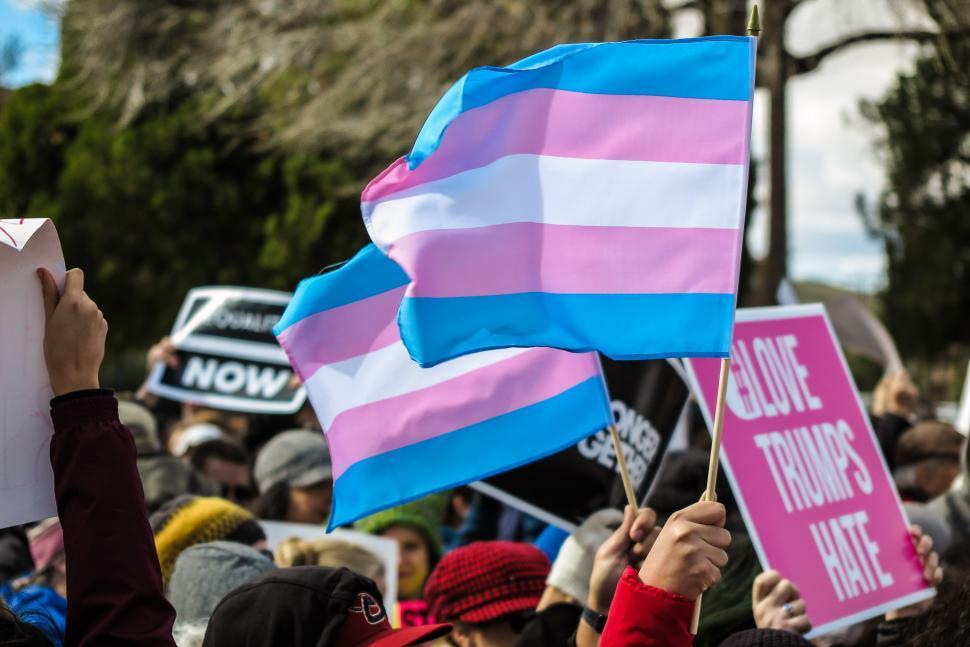Emotions ran high on Monday, March 11, as the Ramapo Indian Hills Board of Education convened a pivotal meeting with a diverse array of agenda items, including an evaluation of Policy 5657—the New Jersey Department of Education’s Transgender Guidance for School Districts. Several parents, students, and community members in attendance voiced their perspectives on a policy that held profound implications for the safety and inclusion of transgender students within the district.
Policy 5657 is the New Jersey Department of Education’s 2018 Transgender Guidance for School Districts. Former Governor Chris Christie signed the legislation, which requires the NJDEP to provide guidance to the schools in regard to transgender students, in 2017. Current Governor Phil Murphy ensured that the NJDEP Commissioner released guidance in 2018 through the N.J.S.A. 18A:36-41. The policy recommends staff to be informed of “common terminology associated with gender identity,” use students’ preferred name and pronouns, communicate with students and parents when appropriate, attend frequent staff trainings on the matter, permit students to use the restrooms they desire, and follow proper legal proceedings.
During the public comment sessions, community members were welcomed to express their concerns to the board. Max McManus, a sophomore at Indian Hills and one of the first to speak on the matter at the meeting, shared, “When hearing that the policy that keeps me protected and safe in school is trying to be abolished, I knew that I would not stand for [it].” McManus then listed the aspects of Policy 5657 that he valued most. “It is not acceptable that trans students just like me have to live in fear every day from just simply walking through the halls during school,” he added.
Likewise, several transgender alumni of the school district came to the board meeting to share their concerns. One trans alumnus said, “This policy is important because it ensures that all students feel safe and respected at school. Transgender students are particularly vulnerable to discrimination and harassment.” Shavonne Farley, senior at Indian Hills, expressed concern over the abolishment of the policy, saying, “I would like to call into question the assertion that the administration knows more about students’ home life than they do. There are a lot of parents out there that I’m truly confident love their children and would support them, but, unfortunately, that’s not universal.” Collectively, those supporting Policy 5657 stated that the policy protects transgender students from bullying, mandates staff knowledge on the topic, and protects transgender students from the potential for an unsafe family dynamic at home.
Joe Kuhns, Oakland resident, stated, “I would like to urge the board to revoke Policy 5657,” quoting Dr. Stephen Levine, a psychiatrist who has been an expert witness in cases that restrict gender-affirming care. Another Oakland resident shared, “There’s no place for any [bullying] here. […] I have a daughter who is young now, so hearing both sides of [the discussion], I just think in the future, what would occur to her? If this policy [does not get abolished], I’m thinking ‘Okay, so now, my daughter will change in a locker room or bathroom and a male transgender [student] [enters the room], I’m not sure how she would feel. I feel like she would be bullied.” A Wyckoff resident expressed similar worries, saying, “Abolishing District Policy 5657 does nothing to protect the rights of transgender students; if anything, the policy as it is now attacks parental rights and prevents parents from being involved in the decision-making process that should really be involving the whole family.” Overall, the argument in favor of the abolishment of Policy 5657 was based on psychiatric concerns, safety, and parental rights.
The board members commented on the policy following the public commentary sessions. Board President Kim Ansh expressed her concerns, saying “One of the most sacred bonds in education is the trust that parents put in their school administrators, teachers, and their board of education. When you are now in a situation where the school may be lying to you about your child, that trust is broken.” Following up on Ansh’s sentiments, Thomas Bogdansky said, “One of my primary concerns revolves around the fact that students under 18 are considered minors. […] This legal distinction is in place because when minors are considered children, they need guidance to protect [them] as they navigate their formative years. I don’t believe any form of government should take away the God-given rights of parents to guide and protect their children.” Many board members who voted in favor of the abolishment cited parents’ rights and concerns for children’s mental health.
Mr. DeLaite, BOE member, commented that the abolishment was done to “[…] appease a certain constituency in our community at the expense of those that need the most protection. […] If you have a great relationship with your children, they’re going to share with you. The children who need to be protected the most are the ones who are at risk in their own homes.” Helen Koulikourdis, another BOE member, stated, “I am concerned that [abolishing the policy] will expose the board to litigation and retribution by the state, reducing or eliminating our state aid, which will also ultimately raise real estate taxes. I don’t believe that this should be done at the school level. This is the law and if you are unhappy with it, it is important that you contact your local assemblymen and state senator.” Board members who voted against the abolishment highlighted the risk of litigation, concerns of child safety in the home, and noted the state as the advisor of the policy.
Mr. DeLaite then motioned to table the vote, seconded by Dr. Lorenz. The motion did not pass (3 in favor, 6 against), so the vote on the abolishment began. Policy 5657 was abolished (6 in favor, 3 against), making the Ramapo Indian Hills School District the twenty-fourth district to do so.
Although Policy 5657 was abolished, transgender students will continue to be protected by the New Jersey Law Against Discrimination (“NJLAD”), N.J.S.A. 10:5-12(11)(f), which prohibits schools from treating students who identify as transgender (among other identities listed) from being treated differently than their counterparts. Additionally, Title IX of the Education Amendments of 1972 in the US Constitution prohibits discrimination on the basis of sex in federally funded educational institutions. That being said, these laws do not protect transgender students in the same way that Policy 5657 intended to. Under Policy 5657, students’ preferred names and gender identities were not required to be revealed to parents. Now that the policy has been overturned, it is up to faculty members as to how they will handle parental communication regarding the matter.





